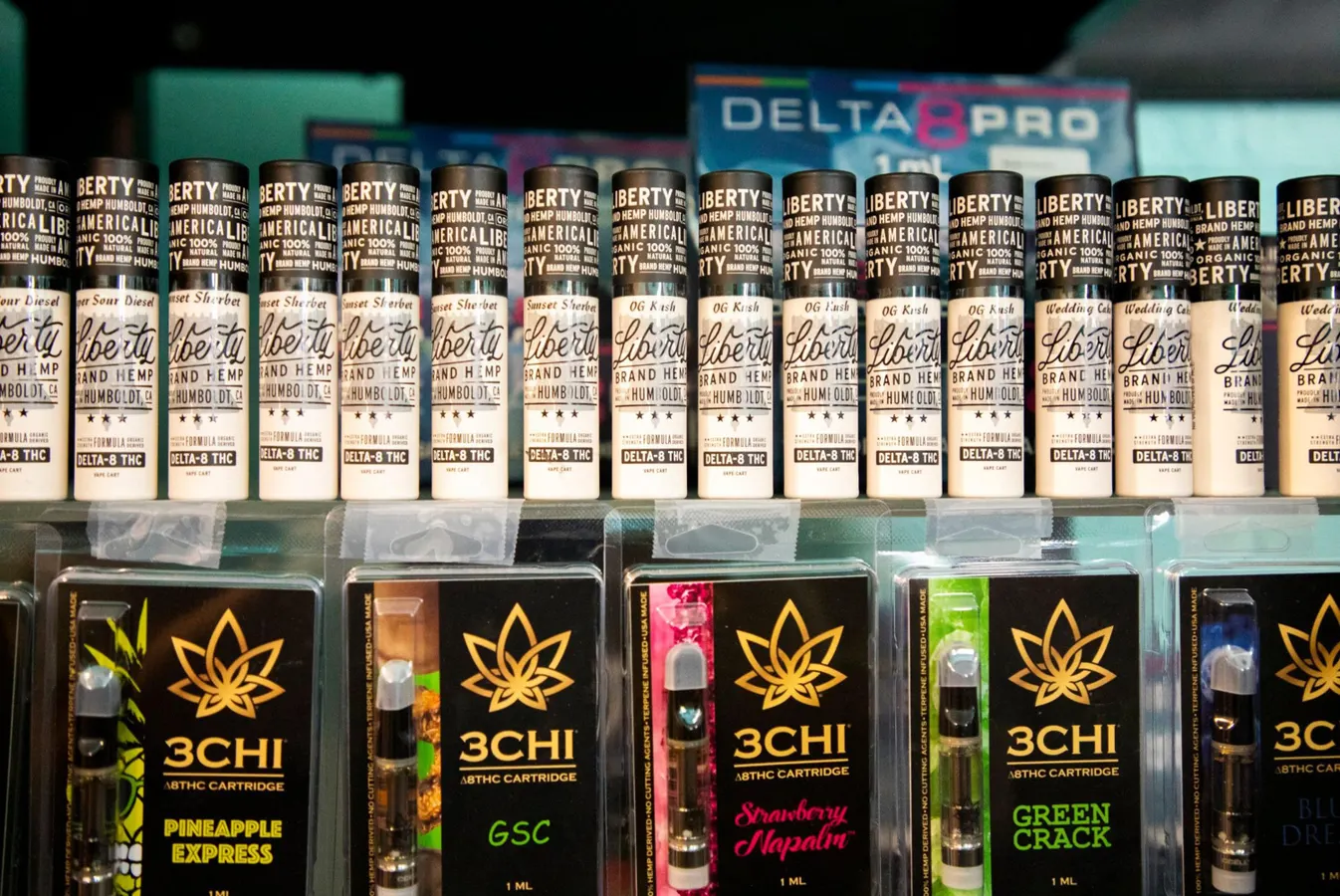By Contributor,Dario Sabaghi
Copyright forbes

Vape cartridges of Delta 8 THC are displayed on shelves behind the counter in Cannabliss Dispensary, on Wednesday, July 7, 2021, in Chapel Hill, North Carolina. (Casey Toth/The News & Observer/Tribune News Service via Getty Images)
California lawmakers have passed sweeping legislation to crack down on hemp-derived THC products, such as delta-8 and delta-10 THC products, tightening oversight of a booming gray market that has drawn mounting scrutiny from health officials and licensed cannabis operators.
The California Senate on Saturday approved Assembly Bill 8 in a unanimous 73-1 vote, after the Assembly unanimously approved the bill the day before.
The text will now be presented to Gov. Gavin Newsom, who is expected to sign the measure, which would take effect on January 1, 2028.
The passage of this bill makes California the latest to attempt to restrict the sale of hemp-derived THC products.
Since the 2018 Farm Bill legalized hemp for industrial purposes, some manufacturers have exploited a loophole to create compounds similar to recreational cannabis THC and sell them legally as hemp products.
This loophole fueled a $28 billion gray market, which states are now slowly dismantling—though some have already moved to regulate the industry.
How California Is To Ban Hemp-Derived THC Products
The bill would bar smoke shops, gas stations, and convenience stores from selling hemp-derived THC products, such as delta-8 THC and delta-10 THC. Instead, these products would be sold as part of California’s licensed cannabis supply chain, where they would face strict testing, labelling, and taxation rules.
MORE FOR YOU
Only CBD isolate that is derived from industrial hemp and contains no THC or synthetic cannabinoids would remain exempt.
The bill would also outlaw inhalable cannabis products derived from hemp, hemp flower, and pre-rolls, as well as synthetic cannabinoids and cannabis products made outside the licensed system.
The legislation follows emergency regulations Newsom issued in 2024 that barred detectable levels of THC in hemp-derived food and beverage products, set the legal purchase age at 21, and capped servings at five per package. Those rules foreshadowed the sweeping approach now poised to become law.
The California Department of Public Health warned in June that a crackdown on intoxicating hemp could close more than 100 businesses in the manufacturing segment and result in the loss of nearly 18,500 jobs over five years, costing the state more than $3 billion in revenue.
As hemp-derived intoxicants undercut their industry by avoiding the state’s 15% excise tax and stringent quality controls, the bill stipulates that nearly all concentrated cannabinoids from hemp would be treated as cannabis products, tracked, and taxed accordingly.
Senate amendments, however, allow cannabinoid products “derived exclusively from industrial hemp” to be shipped through California without entering the licensed market, as long as they are not sold in the state, preserving protections under the 2018 federal Farm Bill.
Another amendment says that until January 1, 2028, licensed cannabis manufacturers can only use concentrates or extracts made from cannabis grown by licensed growers. They aren’t allowed to handle, move, sell, or make products from industrial hemp on their licensed sites, though licensed testing labs are still allowed to test hemp.
State tax officials and other regulators would get new powers to crack down on these products. That means they could seize not just illegal cannabis and hemp goods, but also alcoholic drinks laced with cannabinoids. Anyone caught lying about products to dodge penalties could face misdemeanor charges. And in another big shift, tobacco shops would no longer be allowed to sell or even keep cannabis products on their shelves.
The bill puts a big focus on consumer safety. Starting in 2026, hemp extracts won’t be allowed in food or supplements unless they are more than 99% pure and completely free of THC or synthetic cannabinoids. Packaging and marketing rules also get tougher: no using cannabis logos unless licensed, and all products have to come in child-resistant containers to help keep kids away.
Editorial StandardsReprints & Permissions



